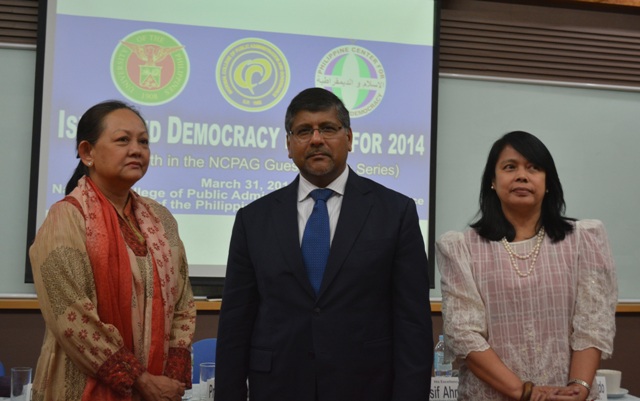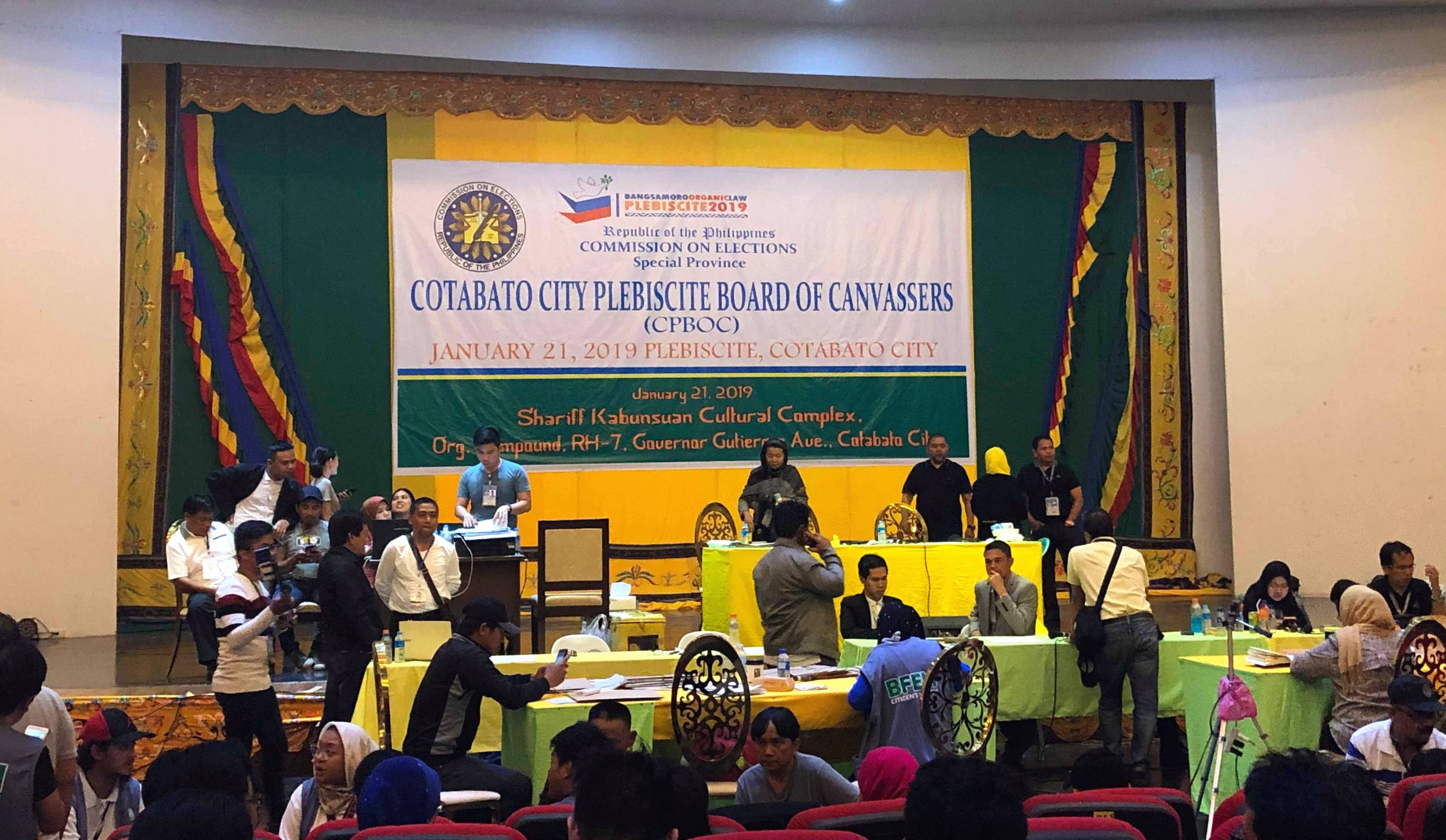
By JANE DASAL
A BETTER police force, improved infrastructure and transportation facilities, and opening up business opportunities are urgently needed in areas that will comprise the new Bangsamoro political entity, British Ambassador to the Philippines Asif Ahmad said Monday.
Ahmad, who addressed a forum at the University of the Philippines National College of Public Administration and Governance, also urged Filipinos to acquire a sense of unity of purpose and set aside historical differences following the signing on March 27 of the Comprehensive Agreement on the Bangsamoro.
There is a need for “a national change in hearts, minds, and policies,” he told the audience that included about a hundred participants from the Muslim community, including representatives from the National Commission for Muslim Filipinos, and groups such as the National Citizens’ Movement for Free Elections.
“The issues are the lack of good governance and intolerance (toward) minority communities, minority opinions and threat to those holding power,” the ambassador said.
The United Kingdom is part of the International Contact Group in the formation of the CAB.
The Autonomous Region in Muslim Mindanao (ARMM), which will be replaced by the new political entity of the Bangsamoro once the Bangsamoro Basic Law is approved, has one of the highest poverty rates in the country at 45.4 percent.
Ahmad said the region needs to have a better police force. The ARMM has the most number of private armed groups among the provinces with 2, 586 active members as of 2010.
Improving transportation facilities and infrastructure are also vital for development, he said. While 77 percent of the national roads in ARMM are paved, accessibility http://theessaymag.com/canada/ to the region is still affected by the lack of direct connectivity through air and sea transport and the inadequate facilities in airports and seaports.
A Muslim, he also said Sharia banking and finance and the Halal business offer new opportunities for Muslims in the country.
“The reason why they invest in Sharia funds is because it is ethical, probably safer, and probably more better grounded,” he said.
Amina Rasul, president of the Philippine Center for Islam and Democracy, which organized the forum, said in the forum that her organization and the Foundation for Economic Freedom (FEF) are looking to strengthening business and investment in the Bangsamoro through the Sharia banking.
The FEF held a workshop series on Islamic banking and finance in the Bangsamoro on March 11 and 12. According to the FEF, the establishment of the Sharia banking and finance in the Bangsamoro will highlight the role of the private sector in the development of the region’s economy.
Ahmad reiterated that it is the responsibility of the administration and the majority to make the peace process a success.
“They need to be more aware of the issues these communities have faced. They need to look at the invocations of inclusion and exclusion. They need to design government policies and resources and funding that support the agreement,” he said.
Ahmad compared the situation to the Muslims in the U.K. He said discrimination is not tolerated there and Muslims have an easy access to Halal food and the services of imams. The U.K. also has a public transport system that reaches the poor areas, some of which are Muslim communities.
“No longer do we want to hear the excuses that because there are terrorists down there, you can’t do business there. I hope there will come a time when all Filipinos will regard Muslims as people who make contributions to the government, that these are people who have faith and values,” he said.
The signing of the CAB is culminates the 17-year negotiation between the Moro Islamic Liberation Force and the Philippine government. The CAB is expected to end the decades-old armed conflict in ARMM. The peace agreement entails the laying of arms of the Bangsamoro Islamic Armed Forces, the armed wing of the MILF, and the deployment of a police force in the region.
A two-year period is given for the transition and formation of the new Bangsamoro political entity. The clauses on the power sharing, revenue generation and normalization of life in the Bangsamoro are expected to be completed during the transition period.
The two parties are expected to sign an exit agreement once the details in the CAB are fully implemented.
(The author is a University of the Philippines student writing for VERA Files as part of her internship.)

